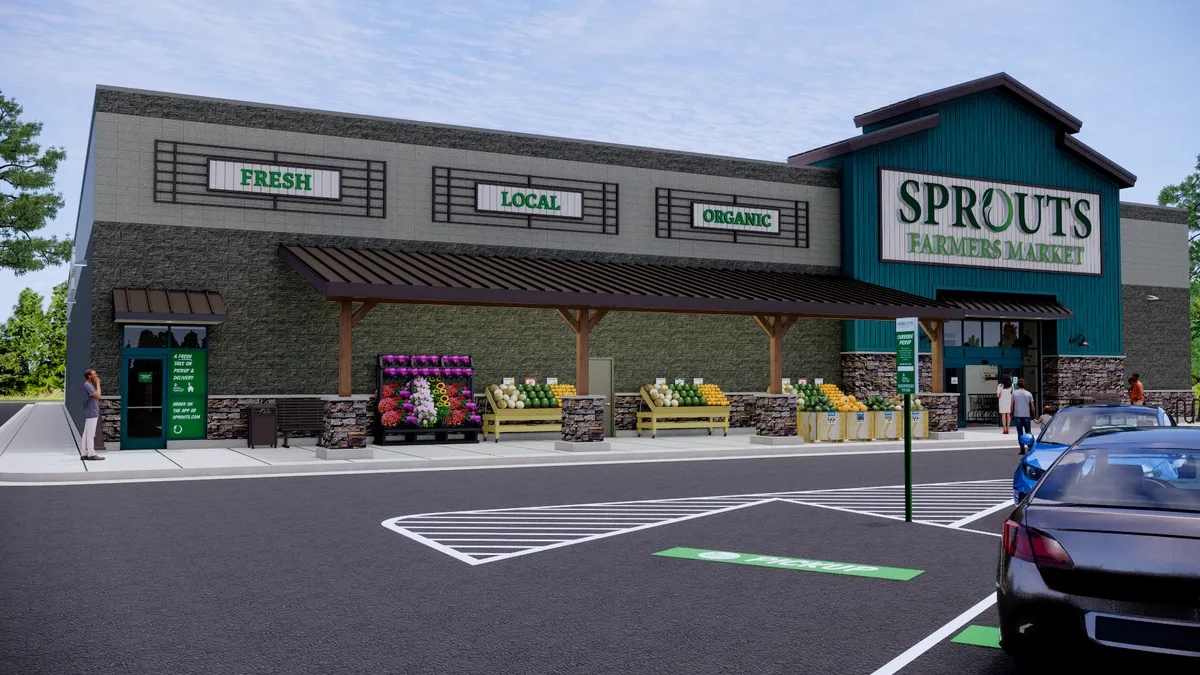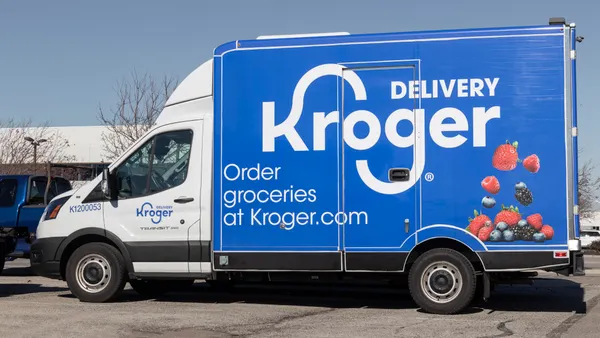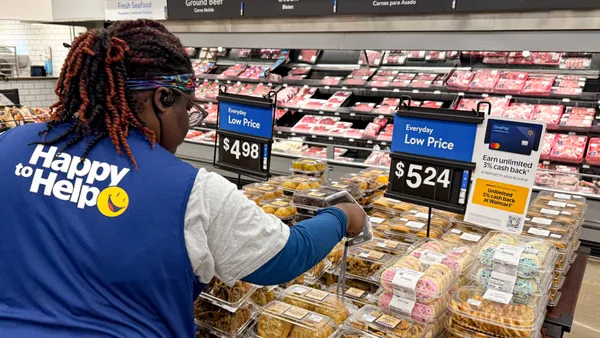Dive Brief:
- Sprouts Farmers Markets recorded lower comparable sales during the second quarter of 2021 compared with both the same period in 2020 and 2019, the produce-focused specialty grocery chain reported on Thursday.
- Net sales for the quarter, which ended July 4, were $1.5 billion, representing a 7% decrease from the same period in 2020 but a 7% increase over the second quarter of 2019. Diluted earnings per share were down in the quarter year-over-year, to 52 cents, but up more than 70% compared with the same period two years ago.
- Sprouts' Q2 sales were slower than the company had expected despite continuing efforts to attract the health-focused consumers it sees as its base, CEO Jack Sinclair said during an earnings call on Thursday.
Dive Insight:
Although Sprouts ran into headwinds during its latest quarter, Sinclair said he remains optimistic that the company's efforts to expand its relationship with the segment of grocery shoppers drawn to its unique assortment will bear fruit during the months to come.
Sinclair attributed the slowing sales to challenges the retailer is facing as it looks to build its customer base and responds to the pandemic. "Our traffic went down through the pandemic as you'd expect ... because of the change in our promotional position and how we kind of went to market. We expected to lose some of those [customers]," he said.
Sprouts "is seeing a pretty static customer base, so it's not like we're losing customers, but we're not gaining them as fast as we would like," Sinclair added.
To combat the declines it is seeing, Sprouts plans to adjust its marketing strategy to build awareness of its offerings and bring more people into its growing number of stores, according to Sinclair. The retailer does not need a dramatic surge in its business to make progress toward its long-term performance goals, he said.
"To be clear, our brand campaign has reached more target customers [and] increased awareness and purchase intent, which is a very important first step, but more [steps] will be needed," said Sinclair, noting that Sprouts' efforts to build a niche consumers base instead of trying to compete head-on with traditional grocers has brought challenges.
Sinclair said that although the pandemic continues to affect Sprouts' business, he is trying to look past the impact of the health crisis, which has seen cases spike again as the delta variant spreads, on the grocery business as he charts the company's course. "We're trying our best to not talk about the pandemic going forward ... [but about how] we're going to get ourselves into Q3, Q4 in terms of really getting back to driving in the traffic within the strategy that we've outlined," he said.
While he expects traditional grocery chains to lower prices to encourage shoppers to come back to their stores, Sprouts does not plan to follow suit, he said.
"The last thing we want to do is drive in very [low-profit] customers who just come in for the deals, which is where we came in a couple of years ago, and that's why the comparison to 2019 Q2 and the Q2 in 2021 works for me in terms of understanding our business. We've reshaped the whole proposition of the business and we've reshaped it to target against specific customers who appreciate the differentiation that we have," said Sinclair, who arrived at the retailer in mid-2019 intent on shifting its marketing strategy.
Although Sprouts wants to avoid building traffic and sales by attracting customers whose primary focus is price, the retailer is continuing its efforts to position itself as a value leader in produce, its core offering. For example, Sprouts is working to bring prices for organic produce — which accounts for 35% of the chain's overall produce sales — in line with what it charges for conventional fruits and vegetables, Sinclair said.
Sprouts hopes to open 20 new stores during 2021, but seven of those locations might be delayed until 2022 because of pandemic-related factors like difficulty in obtaining refrigeration equipment, Chief Financial Officer Denise Paulonis said during the earnings call. Several of the new stores will be based on the retailer's updated store format, which requires less space and reduces construction costs.
The chain, which currently has about 360 locations in 23 states, debuted a single store during Q2 and has opened two more stores so far in the current quarter, according to Sinclair.
Building Sprouts' presence in its existing markets and expanding into new ones is a central tenet of Sinclair's growth strategy for the company.
"We don't need crazy comps for the economics of this thing to work as you can see from the earnings that we're delivering," he said. "So if you can deliver superior returns on a relatively modest comp base, then the opportunity for us to grow comes with building a lot of stores in places where we don't exist. And there's so many of those."
Paulonis said Sprouts' online business accounted for 10.1% of sales in Q2, although it showed signs of slowing toward the end of the period. Compared to the second quarter of 2019, the retailer's e-commerce sales were up more than 350%, she said, adding that typical online shopping baskets are almost twice the size of what Sprouts sees among in-store shoppers.











